Iran: Vienna talks on right path; deal possible if there’s seriousness, goodwill
Iranian Foreign Minister Hossein Amir-Abdollahian has expressed optimism about the ongoing talks between Iran and the P4+1 group of countries in the Austrian capital of Vienna, saying the negotiations are moving “in a good direction” and an agreement is possible if other parties show “goodwill” and “seriousness.”
“We believe that if the other sides continue the talks, which have just started in this phase, with goodwill, it will be possible for all parties to reach a good agreement and we can realize this goal,” Amir-Abdollahian told reporters on Tuesday.
“If the opposite parties show seriousness along with good faith, reaching a good agreement in the near future is conceivable,” he added.
The important point, Amir-Abdollahian added, is that the negotiating sides have reached a “unified, joint text,” which is currently the focus of the Iranian team.
He said the two sides were busy discussing and trying to reach an agreement over the outstanding issues mentioned between parentheses in the text, adding the teams “are working intensively.”
Talks are underway with the P4+1 states, namely Russia, China, France, Britain plus Germany, while the European Union and its deputy foreign policy chief Enrique Mora are actively trying to continue their coordination role, Amir-Abdollahian added.
Press TV’s correspondent in Vienna Homa Lezgee said the eighth round would continue until Thursday.
Iran and the five remaining signatories to the 2015 deal — officially known as the Joint Comprehensive Plan of Action (JCPOA)— on Monday started the eighth round of talks in the Austrian capital focused on the removal of all sanctions imposed on Tehran after Washington’s unilateral withdrawal from the agreement. The previous round, the first under Iran’s new President Ebrahim Raeisi, ended 10 days ago.
During the previous round, Iran presented new proposals at the negotiating table to help the talks move forward and later criticized the European signatories of the JCPOA for failing to follow suit and remaining passive.
At the end of the first day of the fresh round of the talks, Iran’s top negotiator Ali Bagheri Kani said that reaching an agreement on an “effective” and “practical” removal of the illegal sanctions was the key to the success of the ongoing negotiations in Vienna, and that all sides agreed on the priority on removing the US sanctions.
The Iranian foreign minister also said on Monday that the issues of guarantees and verification of the sanctions removal are the main points of the new discussions.
Iran and the five remaining parties to the JCPOA resumed the talks in Vienna on November 29 after a five-month hiatus. During the sixth round, which lasted four days, Iran put forward two proposals; one regarding the removal of the US sanctions and the other concerning Iran’s nuclear commitments.
Iran and the P4+1 group of countries sat down for talks in the Austrian capital on December 9 following a pause on December 3, when the participants returned to their capitals for additional consultations on the two draft proposals that Tehran had put forward.
‘Indisputable progress’ in Vienna talks: Russia
Meanwhile, the Russian lead negotiator to the Vienna talks, Mikhail Ulyanov, said on Tuesday that the working group focusing on Iran’s JCPOA commitments held “a useful meeting.”
“We observe indisputable progress. #Sanctions lifting is being actively discussed in informal settings,” the Russian diplomat said.
Today in the course of #ViennaTalks on #JCPOA the working group on nuclear issues held a useful meeting. We observe indisputable progress. #Sanctions lifting is being actively discussed in informal settings. pic.twitter.com/GniRLV6CA7
— Mikhail Ulyanov (@Amb_Ulyanov) December 28, 2021
In another tweet later on Tuesday, the Russian envoy said he held “very useful and positive” talks with lead negotiators of the three European signatories to the JCPOA.
“This morning I had a very useful and positive meeting with the Heads of the British, French and German delegations at the #ViennaTalks on #JCPOA,” Ulyanov tweeted.
China: US sanctions still a key issue
A senior Chinese envoy also on Tuesday stressed the need to expand consensus, patch up differences properly and jointly strive for a new breakthrough in the eighth round of the Vienna talks.
During an exclusive interview with the China Central Television (CCTV), Chinese envoy to the United Nations and other international organizations in Vienna Wang Qun added that the resumption of the talks during the Christmas and New Year holidays fully reflected the sense of urgency.
Wang said despite different interpretations of the seventh round of negotiations, his country, like most of the participants, believed that the negotiations had achieved positive results.
The parties have forged a new “common text” on nuclear issues and a “common understanding” on the removal of sanctions, he added.
The parties agreed to keep on negotiating thoroughly, focusing on these key points, during their eighth round of talks. All these consensuses have laid a solid foundation for this round of talks, the Chinese lead negotiator said.
“Lifting sanctions is one of the most important topics in the negotiations. Actually, there are two topics. The first one is how Iran will restrict its nuclear program. The second one is about lifting sanctions,” Wang said.
“The biggest problem lies with the United States because the United States quit the nuclear agreement and we had to renegotiate on how the United States and Iran would resume implementation of the deal. So sanction is still a key issue,” he added.
He urged all parties to focus on consensus, especially on the existing ones, at present and to work hard to expand consensus on this basis, stressing that differences must be properly handled.
Wang emphasized that it would not do to resort to utilitarianism and double standards out of one’s private interests, neither would it do to wave the sanction club and even impose new sanctions during the course of negotiations.
He expressed hope that all parties could take practical moves to safeguard the current negotiation momentum and atmosphere so as to strive to reach a package of solutions as soon as possible.
“The United States has imposed countless sanctions, ranging from primary sanctions to secondary sanctions. So we emphasized at the beginning of the talks that one should have a sense of right and wrong,” the Chinese diplomat said.
“Those who quit the nuclear agreement and imposed sanctions should take steps. This is the goal of the talks. China opposes the US for its move to arbitrarily resort to use of sanctions, and the double standards that the United States adopts on Iran nuclear issue and related nuclear non-proliferation issues,” Wang added.
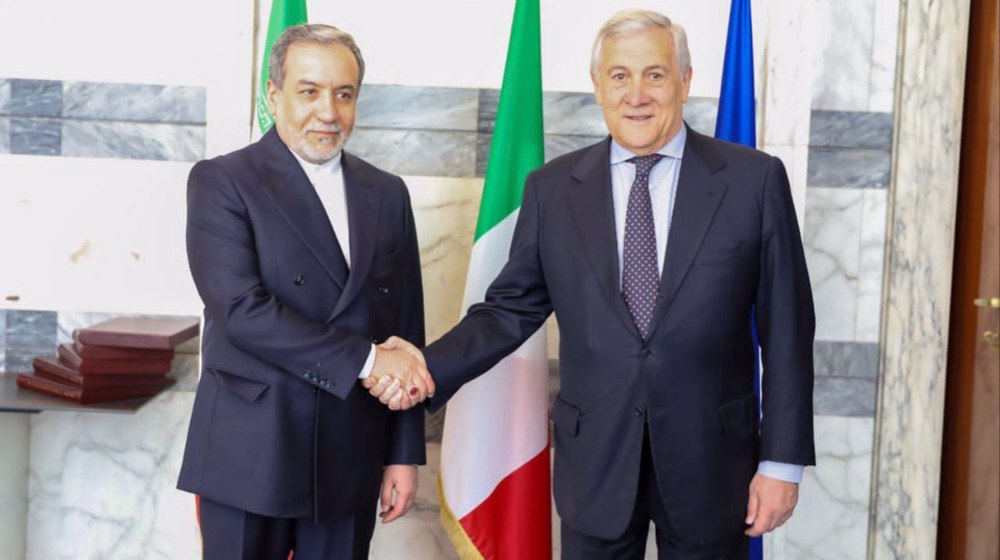
Israel is the sole obstacle to nuke-free West Asia: Iran FM
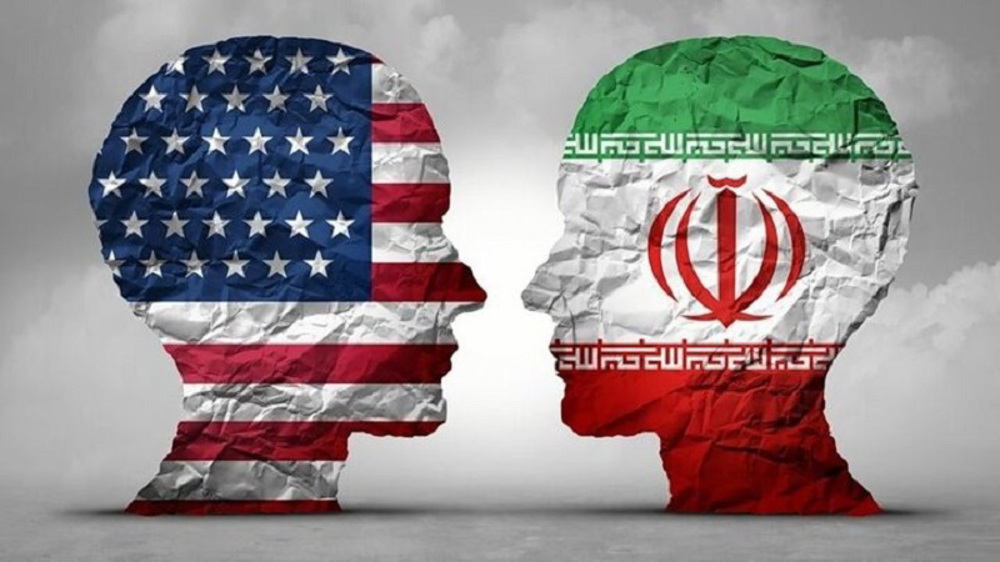
Indirect Iran-US meetings
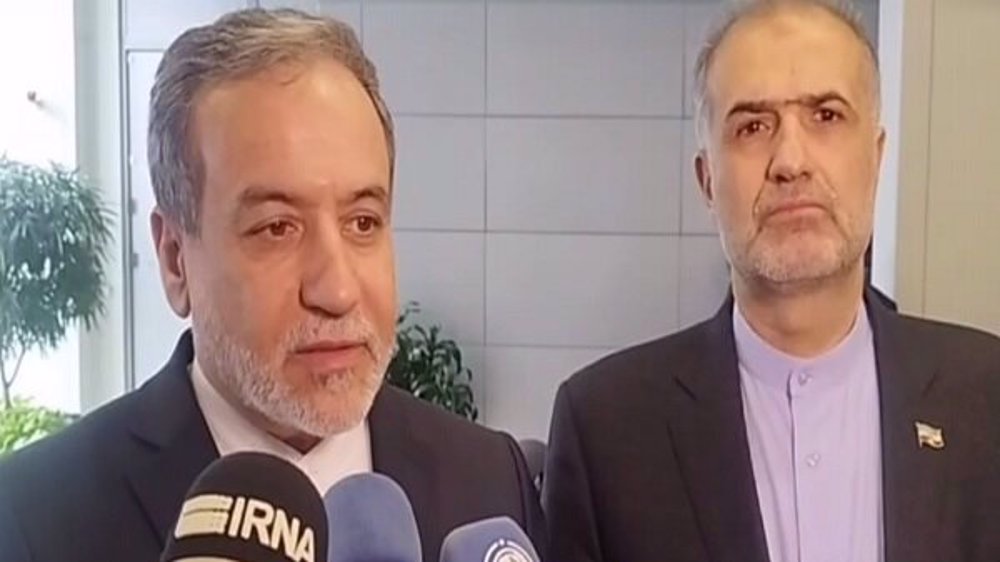
Iran's FM in Russia to 'consult on matters of common concern'
Promising prospects in Iran’s ammonia industry
US Supreme Court blocks Trump’s deportations under antique law
New US ambassador to Israel breaks into al-Aqsa mosque right after assuming post
Fired employees call for boycott of Microsoft over its role in Gaza genocide
Colombia’s president likens Gaza genocide to Jesus’s suffering
‘A complete meltdown in Pentagon’: Top aides fired amid ongoing leak probe
Israeli bombings kill at least 70 in Gaza, targeting homes, tent camps
Israel is the sole obstacle to nuke-free West Asia: Iran FM


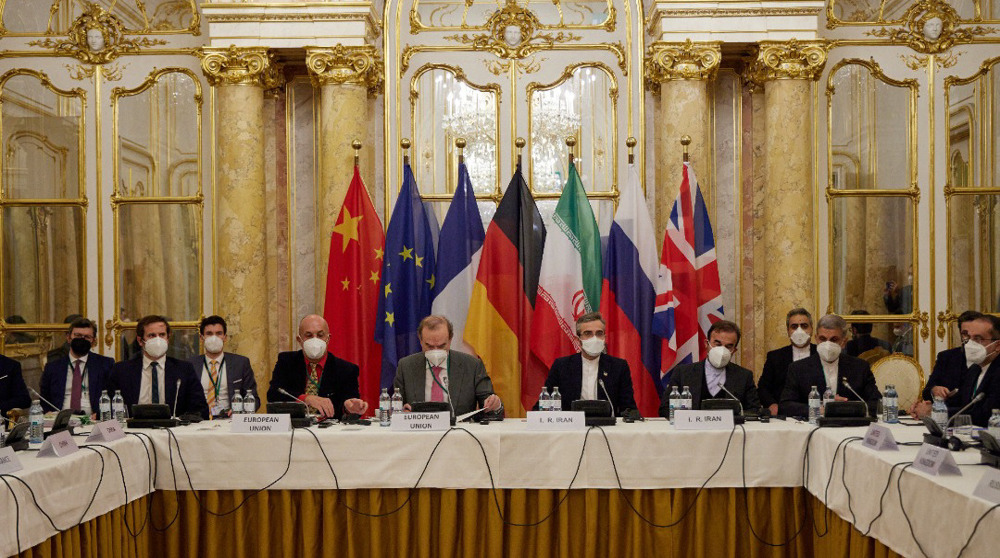
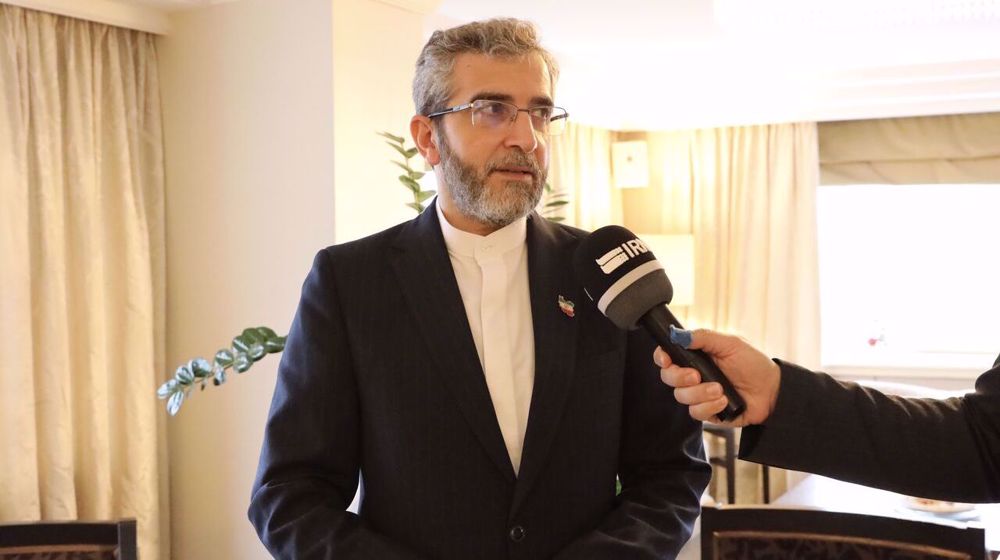
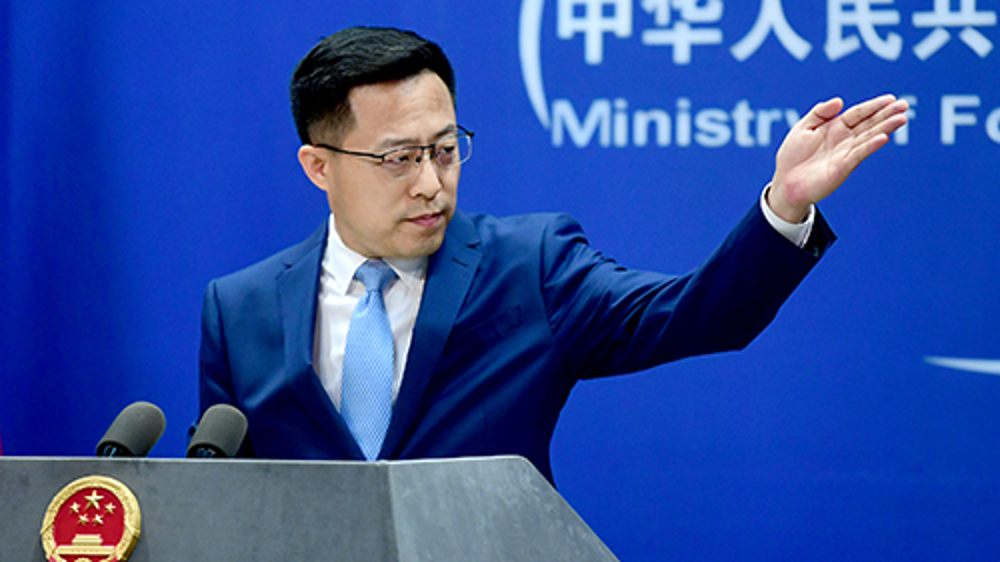




 This makes it easy to access the Press TV website
This makes it easy to access the Press TV website